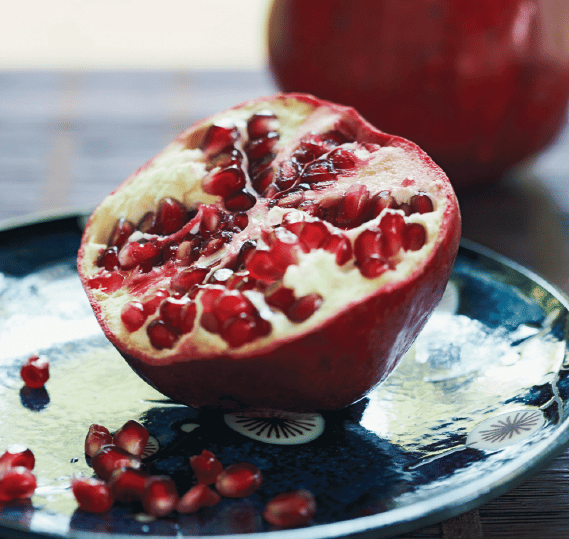Pomegranates | The Forbidden Fruit
As an apple was Eve's undoing, a pomegranate took down Persephone. Way down. Down to the underworld. And every October and November, the fruits of Persephone's demise hang red-tinged, robust and ripe across the Greek islands — from the Ionian Islands in the northwest to Rhodes in the east — taunting her with their plump cheeriness. During these months, pick ripe pomegranates while hiking around Crete's mountain villages, or sample their seeds at Aegina's floating fruit market, where vendors peddle the chubby fruits from boats moored to the wharf. Pomegranates are ubiquitous in Greece. Their bushes dot shrubby hillsides and take up residence in backyards and courtyards, and their likeness shows up in Greek homes as trinkets and little stone carvings because they're considered auspicious symbols of luck, fertility and abundance. Pomegranate seeds, coddled within a white inner membrane, beckon like pockets of rubies or scarlet glass beads; you can understand why poor Persephone was uncontrollably tempted. According to Greek myth and grandmas alike, the girl ate a single seed while in the realm of Hades, which bound her to him for four months a year. This season must taunt her because the bushes show off their fruits right when she must return to the underworld. We mortals, however, get to walk around with happy smiles stained red.
